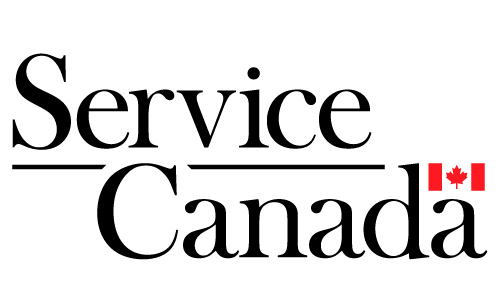
35 years of experience with workplace safety and insurance and years of experience with Canada Pension Plan disability.
Phone: 289-239-9906
Email: info@goodfellowlegal.ca

Representing injured workers and employers on all WSIB matters and appeals

Representing injured workers and employers on all WSIAT matters and appeals

Applications and appeals for CPP disability benefits
Training for unions and employers on WSIB and WSIAT issues.
My name is Ed Canning, and I am an Employment Lawyer and Partner at Ross & McBride LLP in Hamilton. I have known Bob for about 25 years, both when he worked for WSIB and as a paralegal. There are a few people who are as familiar with the Workplace Safety and Insurance Act as Bob and his knowledge of the caselaw surrounding it is extensive. Importantly, he has intimate knowledge of the bureaucracy involved and how to navigate the system. Bob does everything thoroughly and is an excellent listener. I routinely recommend his services to my clients.
Competence, commitment, and effective communication
Robert Goodfellow
I am licensed with the Law Society of Ontario as a Paralegal. I have 35 years of experience in the field of workers’ compensation, which includes
working for the Workplace Safety and Insurance Board. It is an asset to have worked for WSIB because I know the processes and procedures and how to get things done. I have years of experience with CPP disability applications and appeals.
I have extensive experience reviewing worker’s claims and making appeals to the Workplace Safety and Insurance Board (WSIB) and the Workplace Safety and Insurance Appeals Tribunal (WSIAT).
The Workplace Safety and Insurance Board legislation, operational policies, and practices are complex. I am competent in all aspects of Ontario workers’ compensation because of my many years of experience.
I have an Ontario College Graduate Certificate in Paralegal with Honours. Additionally, I have an Honours Bachelor of Business Administration degree and a Master of Education degree.
I represent both employees and employers.
I will continue working for you until all issues have been resolved with the WSIB and the WSIAT.
If you retain me, your communication will be with me for the duration of your WSIB and/or WSIAT matter. Your communication and appeal submissions will not be delegated to a junior paralegal or law clerk.
The maximum contingency fee is 30%. If you are considering entering into a contingency fee retainer agreement, we encourage you to read this guide published by the Law Society of Ontario.
https://lawsocietyontario.azureedge.net/media/lso/media/about/initiatives/en_contingencyfee_consumerguide-april2021.pdf
Please contact us for other fee options for workers and employers.
The WSIB began in 1914 and workers lost their right to sue employers for workplace injuries and diseases in exchange for a no-fault insurance plan. The WSIB is funded by employer premiums and does not receive money from workers or the provincial government.
The WSIB is responsible for administering the Workplace Safety and Insurance Act. The purpose of the Act is to promote health and safety in workplaces, help with the return to work and recovery of injured workers, provide retraining programs if necessary, and to provide compensation and other benefits to injured workers.
The WSIB website is WSIB.ca. The WSIB decision makers use operational policy documents when making decisions. The operational policy documents are found on the WSIB website. There are approximately 300 operational policy documents.
The head office of WSIB is in Toronto and there are regional offices in Hamilton, Kitchener, London, Windsor, Ottawa, Sudbury, and Thunder Bay. There are also area offices in St. Catharines, Sault Ste. Marie, and North Bay.
It is possible for WSIB staff in any of the offices to be assigned to make a decision in your claim. It is possible that WSIB staff in different offices to be responsible for different parts of your claim. The WSIB is responsible for administering the Workplace Safety and Insurance Act. The purpose of the Act is to promote health and safety in workplaces, help with the return to work and recovery of injured workers, provide retraining programs if necessary, and to provide compensation and other benefits to injured workers.
Some of the roles of staff at WSIB an injured worker may encounter include:
It can be confusing for injured workers to know who they should talk to about their claim because different staff are involved at different times making decisions and they can be in different offices.
The Appeals Services Division Practice and Procedures document is 70 pages and can be found on the WSIB website.
https://www.wsib.ca/sites/default/files/2019-03/appeals_practiceandprocedures_2018.pdf
Any time an injured worker is denied a benefit or service from WSIB, the decision maker is required to send the decision in writing. The decision will have a date for objecting to the decision, which will usually be 6 months from the date of the letter, although the date for objecting to the decision is 30 days for return to work issues.
Injured workers or their representative must complete an Intent To Object Form within the time given for the appeal. The form is on the WSIB website. It can be completed on line and uploaded or printed and mailed or faxed to WSIB. If the appeal time limit is missed, there can be an appeal regarding the time limit issue but it is best not to miss any appeal time limits.
Once the WSIB decision maker receives the Intent to Object Form, the decision maker will send the injured worker a complete copy of the WSIB claim file and an Appeals Readiness Form. The majority of WSIB appeals are written submissions without an in-person hearing. The Appeals Readiness Form is completed along with a written submission or a request for an oral hearing.
WSIB appeals decisions are made by WSIB staff called appeals resolution officers. The appeals resolution officer decision is the final decision of WSIB. If the decision denies all or part of a worker’s claim, the worker may appeal to the Workplace Safety and Insurance Board.
The mandate of the WSIAT is to hear and decide appeals from final decisions of WSIB. The WSIAT is an adjudicative agency within the Ontario administrative justice system. The WSIAT is independent of WSIB.
The WSIAT website is WSIAT.on.ca.
The WSIAT head office is in Toronto although hearings are heard in regional centers throughout the province.
The majority of WSIAT decisions are heard in person in an oral hearing. The decision maker is a Vice-Chair. Hearings either have one Vice-Chair or a panel of three.
The WSIAT website has practice directions.
Once an injured worker receives a decision from an Appeals Resolution Officer denying a benefit, the injured worker must complete a Notice Of Appeal form within 6 months of the final decision from WSIB. The Notice Of Appeal form is on the WSIAT website. If the time limit is not met a case may be made for a time limit extension but it is best not to miss any time limits.
Throughout the appeal process there are Readiness Forms, Confirmation of Appeal Forms, and the Hearing Ready Letter. In most cases the appeal is then sent to schedule an oral hearing.
All WSIAT decisions are published on the WSIAT website and www.Canlii.org. Previous WSIAT decisions are in some cases persuasive in subsequent decisions. It is important for a representative to research previous WSIAT decisions prior to a WSIAT hearing.
The WSIAT has dispute resolution methods that may provide benefits to workers without a hearing. The WSIB does not participate in the WSIAT decision. The WSIAT is independent of the WSIB. The WSIAT decisions are the final decision and they are not appealable except in rare circumstances.
When you contact me by telephone or email I will call you to gather more information. I will offer you a free in-person consultation in Burlington, Hamilton, Kitchener, or Mississauga. I will spend the time necessary to identify the issues of your case.
For a consultation it is very helpful if you bring a copy of your claim file. Your claim file contains medical chart notes and records, memos written by WSIB staff, and correspondence, which may include correspondence from your employer. You may ask for a completed copy of your WSIB claim file at any time by sending a request in writing to the WSIB.
If you have been denied any benefit by the WSIB, it is important that you meet the appeal time limit. The time limits are either 30 days or 6 months and they are explained in more detail on the WSIB and WSIAT FAQ page of this website.
4145 North Service Road Second Floor
Burlington ON L7L 6A3
Free parking
Robert Goodfellow will also meet you in offices located in:
Contact Robert Goodfellow for the locations.
© 2019 All rights Reserved. Design by Vivos Web